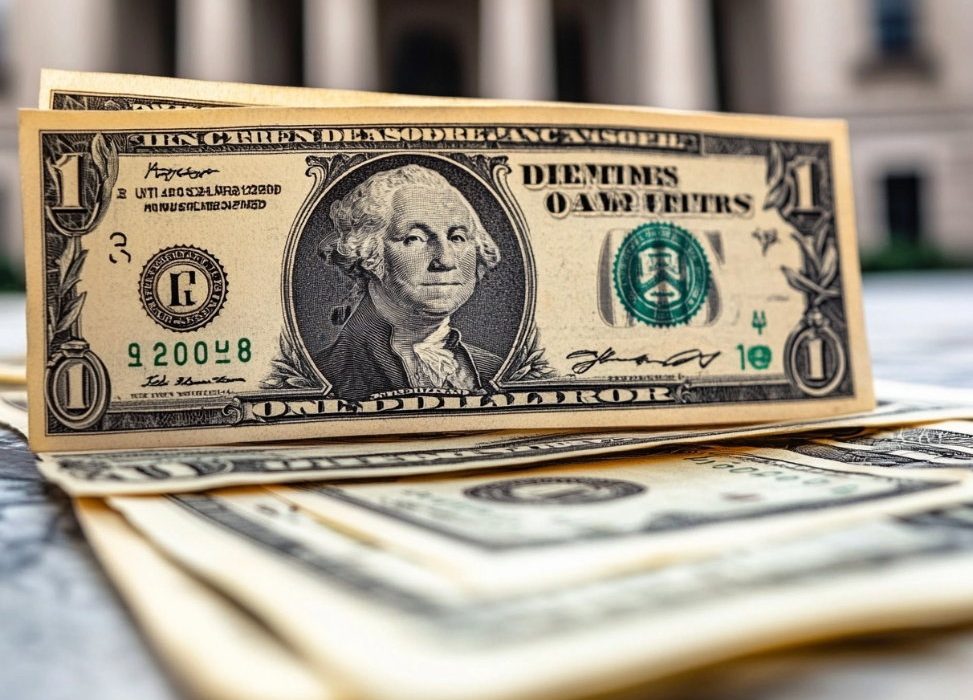Worried about your financial shape? Try trimming some fat from your budget.
If you’re worried about heart health, you can try to lose weight. Why not apply the same logic to your finances?
A recent survey from Allianz Life found that 61 percent of boomers worry more about running out of money than death. It’s an especially potent concern, considering the current swings in the financial markets and apprehension over how tariff policies will affect consumer prices.
For many people who are retired and living on a fixed income, or who are approaching retirement, now could be a good time to go on a money diet.
A money diet entails cutting out the excess that’s eating into your budget and spending money only on essentials for a set period. Trimming this budget fat can help you grow your savings and gain awareness of unhealthy spending habits.
“Since many older consumers are on a fixed income, a money diet would be a smart idea for them to consider, giving them more peace of mind on their money lasting through retirement,” says Jillian Stephenson, an assistant teaching professor at Heinz College at Carnegie Mellon University in Pittsburgh.
What is a money diet?
Also referred to as a “spending fast,” a money diet is a financial reset to eliminate unnecessary expenses, cutting out the spending equivalent of junk food and sticking to a slimmed-down budget. It can help you spot ways you’re wasting money, from automatic payments for streaming services you no longer use to overbuying food in bulk. It can also help you be more intentional about how you spend your hard-earned income or retirement savings.
How to start a money diet
It’s a two-step process, says Melissa Joy, a certified financial planner and president of Pearl Planning in Dexter, Michigan. Step one is to look at your three most recent bank statements to determine how much you’re spending and what you’re spending on. Step two is to identify easy places where you can cut back, such as restaurant meals, concerts and movies.
“Quick diet wins can include cutting down on excessive eating out and daily coffees, expensive hobbies [like] golf and gym memberships, lavish vacations, and entertainment subscriptions or cable TV,” Stephenson says.
When analyzing your expenses, “ask yourself if there are things you regret spending money on or hidden costs that you didn’t even think about, or items that you bought that you would prefer to be more choosy about in the future,” Joy says.
Think of it this way: Identifying where your money is overflowing will make it easier to turn off the tap. Use the money that you save strategically. You could stash it in an emergency fund so that you have a cushion in the event of a layoff, medical emergency or other surprise expense. (How big a cushion? Financial planners recommend three to six months’ worth of expenses.) It’s an important goal, especially considering 38 percent of Gen Xers (ages 45 to 60) and around 1 in 3 boomers (ages 61 to 79) said they had to use their emergency fund at some point in the last 12 months, according to Bankrate’s 2025 annual emergency savings report.
Money dieting tips
When you start a money diet, it helps to have a positive attitude. If the word “diet” makes you skittish, consider reframing the idea. Joy likes to call it a “financial reset.”
“In some cases, you may not need a complete [money] makeover,” she says. “It’s about looking for intention when it comes to money and healthier behaviors.” Monitoring your progress can help you stay the course. “Keeping track of ways that you are saving can feel rewarding and almost like a game that you are trying to win,” Stephenson says.
If cutting out all your discretionary expenses cold turkey feels intimidating, keep in mind that a money diet isn’t permanent. Setting a hard stop date can help you get going and stay motivated.
While money diet purists encourage taking the plunge and cutting out all nonessential expenses, some experts say it doesn’t have to be all or nothing.
“Making a few manageable cuts every week gives time for someone to build confidence and momentum while gradually developing new habits,” says Mark Elliot, chief customer officer at LendingClub, a financial services company. “They might begin by eliminating one or two subscription services, not eating out or making coffee at home. Once these changes feel natural, they can continue to budget and identify additional areas to trim.”
Remember, a money diet doesn’t have to be a one-and-done endeavor. Making it an annual exercise can help you stay on top of your discretionary spending.







